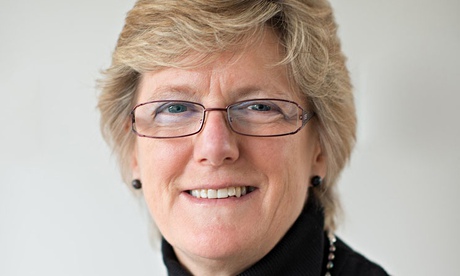
Britain is well prepared for an Ebola outbreak but the best way to ensure the threat to the UK does not escalate is to fight the disease in west Africa, Dame Sally Davies, the chief medical officer for England, said on Wednesday.
Davies told MPs on the Commons health select committee that airport screening had been introduced mainly to alert people coming from Ebola-affected countries as to what to do should they develop symptoms. She conceded that the screening was not mandatory and said that one person so far had refused to comply with a request to have their temperature taken and answer a questionnaire covering any contact they had had with sick people.
“Public Health England followed [him]up. I believe he is well,” she said. She did not know who the traveller was because of data protection rules.
Davies said her message to the international community was: “We need to act now because if we leave it longer there will not only be more deaths and heartache, [and] it will cost vastly more.”
To the British public, she wanted to say: “The risks are very low, the planning is very good and we should see very few cases – and it is not airborne.”
Davies was speaking as more details emerged about plans to bring experimental vaccines and treatments to Sierra Leone, Liberia and Guinea. The World Health Organisation revealed that some patients could soon be given blood from survivors who have developed antibodies against the virus.
Vaccines were likely to be tried for health workers and burial teams in the new year, although only in the context of large-scale clinical trials.
Marie-Paule Kieny, assistant director-general at the WHO, said: “I’m not saying there will be mass population immunisation starting in January 2015. This is not the case. We’re talking about tens of thousands of doses, not millions, in January.”
Until the vaccines were given to people on the “frontline”, scientists could not say whether they would protect against the virus, however an unprecedented manufacturing effort had begun.
GlaxoSmithKline was reported to be producing 10,000 doses of its vaccine, while 800 vials of a Canadian vaccine had arrived in Geneva, ready for the treatment’s first trials in humans.
The company Johnson and Johnson said it would manufacture more than a million doses of its own treatment, 250,000 of which would be available for trials before May.
The WHO has released new figures showing that there have been 9,936 cases and 4,877 deaths from Ebola so far in the current outbreak. The numbers are doubling every three or four weeks.
Meanwhile, MPs expressed concerns about how prepared GP practices in the UK might be for dealing safely with anyone walking into a waiting room with symptoms of Ebola. A&E hospital staff had told committee members that they did not know where their storage areas were for personal protective equipment.
Davies said: “I think they should know where it is, how to put it on, and, more importantly, how to take it off – and have agreed about who will be the first to do it.” Information and training was available to NHS staff; she hoped they would recognise it was in their interests to be ready.
The risk assessment modelling suggested there would be only a handful of cases in the UK at worst before Christmas, she said, so the threat to the UK was low, but that could change depending on how the epidemic developed in west Africa. “We may have to revise it up, which would be sad, or down, which is more likely.”
Paul Cosford, director for health protection and medical director at Public Health England, said his staff, who were doing the entry screening, had legal powers to act if someone was ill. “If somebody is unwell at a port of entry there are very clear powers where we can provide for somebody to be taken to an appropriate place of isolation and assessment,” he said. But the traveller would have to be obviously sick.
Davies said that in the event of someone arriving from west Africa with a fever and entering a district general hospital or GP practice, the reaction might be “say hello, [say] here’s a glass of water and I’m shutting the door and will call the experts to work out what to do”.
She added: “If you do think it is Ebola the ambulance service will be asked to move them to another place where they have more expertise.”
The Royal Free, she said, was the specialist centre but there were also beds in Newcastle, Liverpool and Sheffield. More needed to be done, however, to ensure NHS staff knew what to do in the unlikely event of a case, said Davies.
“I don’t think we are where we need to be, but the risk is low at the moment,” she warned. “This isn’t infection control as they are used to it, where they need to protect the patient; this is more like pilots who, if they make a mistake, go down with the aircraft.”
